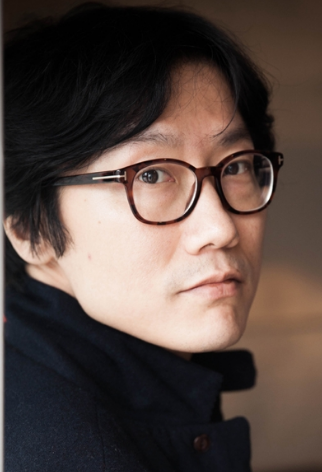Hwang Donghyuk, born in 1971, lost his father when he was young and was raised by his widowed mother and his grandmother. He first received a master’s degree in journalism in Korea before starting to make short films for himself in the 1990s. Later, he decided to study film production at the University of Southern California. International adoption being a topic close to home since one of his aunts was given up for adoption only to meet her mother 20 years later, Hwang tac...
More
Hwang Donghyuk, born in 1971, lost his father when he was young and was raised by his widowed mother and his grandmother. He first received a master’s degree in journalism in Korea before starting to make short films for himself in the 1990s. Later, he decided to study film production at the University of Southern California. International adoption being a topic close to home since one of his aunts was given up for adoption only to meet her mother 20 years later, Hwang tackled it with his short movie <Miracle Mile> (2005), starring Karl Yune, which earned him an invite to the Cannes Film Festival. His debut feature <My Father> (2007) dealt with a similar topic and received praise from film critics for its subtle and subdued approach to a story that could have easily relied on overused dramatic devices. Hwang made a splash in 2011 with his sophomore effort <Silenced>, which was based on the book of the same name by Gong Jiyoung, a fictionalized account of real-life systematic sexual abuses committed on hearing-impaired children at Gwangju Inhwa School. The idea was first pitched to him by the leading actor himself, Gong Yoo, who had been profoundly moved by the novel. After giving it much thought, Hwang decided to take up the challenge and tried writing a screenplay that would deal with this taboo in a respectful yet uncompromising way, exposing the ills of society that allowed it to happen in the first place and then go unpunished. Not only was the film a critical and commercial success, but it also compelled the authorities to reopen the debate on the penalization of sexual crimes committed on children. This eventually led to the passing of a revised bill, which was nicknamed after the film. In a surprising move, Hwang then decided for his next project to direct a fantasy comedy, a drastic departure from the heavy themes of his earlier films. A tale about a grandmother – inspired by Hwang’s own grandmother – who mysteriously regains the appearance she had when she was in her 20s and therefore manages to reconnect with her family, <Miss Granny> (2013) was a tremendous success, garnering 8.6 million admissions. On top of that, it would later be used by CJ ENM to spearhead its entry into foreign markets, as the Korean major produced local remakes in China, Vietnam, Japan, Thailand, Indonesia, the Philippines, and India, all helmed by local directors, with further plans for Turkish, US and German versions. Hwang then turned his hand to historical drama when he adapted Kim Hoon’s bestseller novel in <The Fortress> (2017). Following a King Injo besieged by the Manchu as he must decide whether to bow to new rulers, risking the future of the nation, or fight until the end, the film was hailed by the critics and the public alike, scoring a surprising haul of 3.8 million admissions for such a serious topic, and went on to win several awards, including Best Director and Best Film from the Korean Association of Film Critics, and Best Screenplay at the Blue Dragon Film Awards. After that, Netflix finally offered him the opportunity to realize a project he had been working on since 2008 but had been turn down by every producer in Korea: <Squid Game>. Released on the US streaming platform in 2021, the death game series quickly turned into a global sensation, drawing comparison with the international success of <Parasite>, and became one of the most watched shows on Netflix. Not only did he win several awards in Korea, but he also picked up the Emmy Award for Best Directing in Drama Series in a historic first. This success prompted him to start working on a second season, but Hwang is also preparing his next film project, which would be inspired by Umberto Eco’s <Pape Satán Aleppe: Chronicles of a Liquid Society>.
Less






